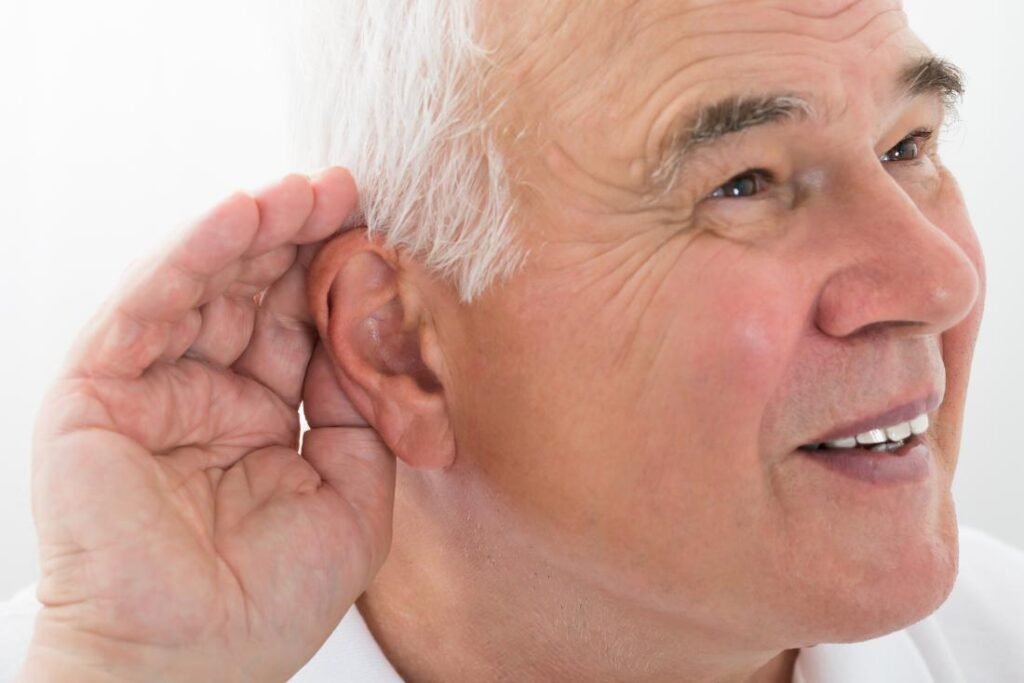Hearing loss refers to a partial or total inability to hear sounds. It can affect one or both ears and can vary in severity from mild to profound. Hearing loss can impact communication, social interactions, and overall quality of life.

Types of Hearing Loss:
- Conductive Hearing Loss:
- Cause: Problems in the outer or middle ear that prevent sound from being conducted to the inner ear. Common causes include ear infections, fluid in the middle ear, earwax buildup, and abnormalities of the ear structure.
- Treatment: Often treatable with medical or surgical intervention, such as antibiotics, removal of earwax, or surgery to repair ear structures.
- Sensorineural Hearing Loss:
- Cause: Damage to the inner ear (cochlea) or the auditory nerve. This type is often due to aging (presbycusis), exposure to loud noise, genetic factors, certain medications, or medical conditions like Meniere’s disease.
- Treatment: Usually managed with hearing aids or cochlear implants. Permanent damage often means this type is not reversible.
- Mixed Hearing Loss:
- Cause: A combination of conductive and sensorineural hearing loss. This means there is both damage in the outer/middle ear and the inner ear/auditory nerve.
- Treatment: Typically requires a combination of treatments to address both conductive and sensorineural components.
- Auditory Neuropathy Spectrum Disorder (ANSD):
- Cause: Disruption in the transmission of sound from the inner ear to the brain, despite having normal cochlear function. It can be due to issues with the auditory nerve or brainstem.
- Treatment: Management may include hearing aids, cochlear implants, and speech therapy.
Symptoms:
- Mild Hearing Loss: Difficulty hearing soft sounds, trouble following conversations in noisy environments.
- Moderate Hearing Loss: Difficulty understanding speech without a hearing aid, needing to ask people to repeat themselves often.
- Severe Hearing Loss: Difficulty hearing loud sounds, almost unable to hear speech even with a hearing aid.
- Profound Hearing Loss: Little to no hearing ability, may rely on lip reading or sign language.
Diagnosis:
- Hearing Test:
- Audiometry: Measures the ability to hear different frequencies and intensities of sound.
- Tympanometry: Evaluates the function of the middle ear and eardrum.
- Otoacoustic Emissions (OAE): Assesses cochlear (inner ear) function by measuring sounds emitted from the inner ear.
- Medical Evaluation:
- Physical Examination: Examination of the ears to check for physical problems.
- Imaging: CT or MRI scans may be used to visualize the structures of the ear and surrounding areas.
Homeopathy for Hearing Loss:
Some homeopathic remedies that might be considered include:
- Calcarea Carbonica: For hearing loss associated with middle ear issues or fluid accumulation.
- Kali Mur: For ear infections and conditions with fluid in the ear.
- Silica: For chronic ear infections or hearing loss with sensitivity to cold.
- Natrum Muriaticum: For hearing loss related to emotional stress or history of ear infections.

